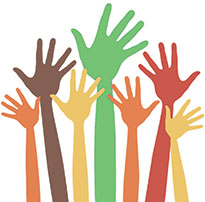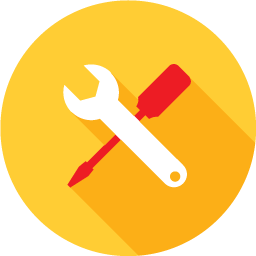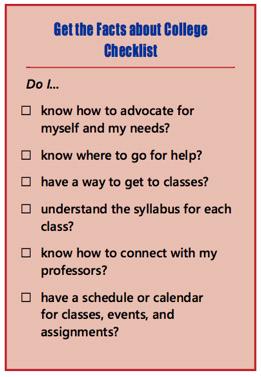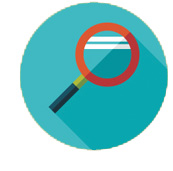
Welcome to the RAISE e-news letter, designed to identify and share resources that the Rehabilitation Services Administration Parent Training and Information Centers (RSA-PTI) can use and share with families.
Executive Editor: Peg Kinsell
Visit our Website:
|
About RAISE
RAISE, the National Resources for Access, Independence, Self-Advocacy and Employment is a user-centered technical assistance center that understands the needs and assets of the RSA-PTIs, coordinates efforts with the TA provided by PTI centers and involves RSA-PTIs as key advisors and partners in all product and service development and delivery.
RAISE is funded by the US Department of Education to provide technical assistance to, and coordination of, the 7 state-level PTI centers (RSA-PTIs). It represents collaboration between
SPAN, the
Native American Parent Technical Assistance Center (PTAC) and the six
Regional PTACs.
Find your Parent Technical Assistance Center (PTAC)
|
|
 |
"
Today is the day that we merge 'who you are' with 'who you want to be.' "
- LeDerick Horne
|
RESOURCES:
The Important Role of Centers for Independent Living
Our nation's network of more than 400 Centers for Independent Living (CILs) are a terrific resource for students in the transition years, and for those working with them to plan for the future. In fact, in many states, the CILs work closely with Vocational Rehabilitation Agencies to help youth with disabilities transition to jobs and post secondary supports.
CILs are community-based, cross-disability, non-profit organizations designed and operated by people with disabilities.
They are unique in that they operate according to a strict philosophy of consumer control - people with all types of disabilities directly govern and staff the organization. CILs provide:
- Peer Support
- Information and Referral
- Individual and Systems Advocacy
- Independent Living Skills Training
- Transition Planning and Support
Click here to find your local CIL >>
|
 PERSPECTIVE:
LeDerick Horne
RAISE Activist LeDerick Horne was labeled "neurologically impaired" in third grade. Today, Horne defies any and all labels. A father, husband, and the grandson of one of New Jersey's most prominent civil rights leaders, he has been called a spoken-word poet, a tireless advocate, an inspiring motivational speaker, and a bridge-builder between learners and leaders.
His work addresses the challenges of all disabilities, uniting the efforts of diverse groups in order to achieve substantive, systemic change.
|

MAKING YOUR POINT:
Student Participation
in Meetings
Your students tell you that they hate going to meetings. We get it...
But there are many ways for students to be involved and learn self-advocacy skills. Ask your students, "which of these ideas might work for you?"
- Come for just a few minutes, instead of attending the whole meeting.
- Write down your ideas, questions, and concerns before the meeting.
- Practice or role-play ahead of time what you want to say in the meeting.
- Just introduce yourself.
- Tell team members about your interests, strengths, and desires for the future.
- Explain to the team what it is like to have your disability.
- Help your teacher write the agenda.
- Help the team develop IEP goal areas.
- Ask for explanations if you do not understand something.
- At the end of the meeting, review what the team decided.
- If you choose not to attend the meeting, share your input with your parent(s) or special education teacher before the meeting and review the meeting's events afterward.
AND SAVE THE DATE...
Here is a cool webinar to help those who use speech-generating devices. Mark your calendar for May 26th.
|

TOOLS THAT WORK:
Making My Way Through College
The National Collaborative on Workforce and Disability for Youth (NCWD/Youth) offers a great interactive guide for students with disabilities who are considering college.
"Making My Way through College" provides information and resources on preparing for and succeeding in college and transitioning from college into the world of work. Families and professionals who work with students entering or in postsecondary education are encouraged to share the guide with students and youth. The guide includes checklists and questions for students to consider at each stage of the process, including questions about disability benefits.
One of the checklists invites students to "Get the Facts."

|
 A CLOSER LOOK:
Deeper Learning for Students with Disabilities
A new 24-page report from Jobs for the Future reviews previous efforts to promote better educational outcomes for students with disabilities. It also describes research-based instructional strategies that can support them and other struggling learners, as well as the kinds of policies and local resources needed to ensure that all young people have meaningful opportunities to learn deeply and become truly prepared to succeed in college, careers, and civic life.
At the conclusion of this paper, readers will understand that when schools make use of readily available teaching strategies and supports, even students who face serious challenges can develop the full range of knowledge and skills associated with deeper learning and that all students stand to benefit from instructional practices known to be effective for students with disabilities.
|
|